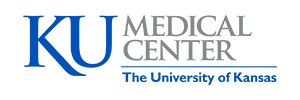University of Kansas Medical Center Online Nurse Practitioner Certificate Programs
Meet the Expert: Kesa Herlihy, PhD, APRN, FNP-BC

Dr. Kesa Herlihy is a clinical associate professor at the University of Kansas Medical Center’s School of Nursing. She began her nursing career in 2006 and has since earned a BSN, an MS in nursing education, a PhD in nursing education, and a family nurse practitioner certificate. Her clinical background includes pediatric and float-pool nursing, and she currently practices in personal injury.
Since transitioning to full-time academia in 2010, Dr. Herlihy has focused on advancing nursing education through simulation, physical assessment innovation, and bias-awareness curriculum development. She is an active member of the Kansas City Regional Simulation Alliance, the National League for Nursing, and serves as Graduate Student Counselor for Sigma Theta Tau International.
NPSchools.com: What do you wish the public understood about online nurse practitioner programs in Kansas?
Dr. Herlihy: When talking about online nurse practitioner programs, we usually mean hybrid education. While most of the course content is delivered online, there are still in-person learning and synchronous (i.e., everyone together online at the same time) activities throughout the program, as well as clinical rotations.
Flexibility is the most important benefit of a hybrid nurse practitioner program. For working nurses who are often busy with their families and other activities, the freedom to complete readings and assignments at a time of the day that works best for them is huge.
A second benefit is the ability to learn from where you live. For many students who attend an online or hybrid program, they do not live in the same city as their school. In Kansas, for example, students who live on the western side of the state can attend a school that is six hours away. If the classes were conducted in person, this would not be possible. Students who live in rural areas can receive the same quality of education as those in urban centers.
Finally, online coursework requires the student to be more responsible for the completion of assignments, as well as using email and learning management systems for communication with their teachers. It is important that students are aware of this and ready to take accountability for their learning. Many people assume online means lower quality, but reputable programs can be rigorous and effective if chosen carefully.
NPSchools.com: What advice would you give aspiring online nurse practitioner program students in Kansas?
Dr. Herlihy: I have three pieces of advice:
- Choose an accredited program. It’s crucial to ensure the program is accredited (e.g., by the CCNE or ACEN), meets state licensure requirements, and includes adequate clinical placements and in-person components like skills intensives or practicums.
- Be prepared to spend a lot of time on your education. Look at your schedule and make sure you have the room to complete readings and coursework, and know that once clinical rotations start, it gets busier, and you need to be able to attend two to three days a week of clinical. You will also need to travel to campus for skills intensives at times, so keep that in mind. Online doesn’t mean easier—time management, self-discipline, and active participation are essential to succeed.
- Talk to your family about the time commitment. While you are in school, you may not be able to do everything you were doing before. Decide what things you can miss and how those events will be handled (like driving children to practices, making dinner, working five days a week, especially during clinicals, etc).
What to Expect from University of Kansas Medical Center Online Certificate Programs
Admission Requirements: Applicants must have completed an advanced practice registered nurse graduate program through a nationally accredited program and hold an MSN with at least a 3.0 minimum cumulative GPA. RN licensure is required in at least one state, and students must hold licensure in the state where clinicals will be completed. Application materials include official transcripts and a criminal background check. No GRE is required. Proof of English language proficiency is required if applicable.
State Restrictions: The University of Kansas School of Nursing accepts students from all states into the Post-Master’s Certificate programs. However the programs may not meet educational requirements for professional licensure in Louisiana and Maryland as these are undetermined. Students outside Kansas should contact KU Nursing as well as their State Board of Nursing to verify eligibility and licensure requirements.
Study Plan: The Post-Master’s Certificate programs are all designed to be completed in one year, however they are usually completed within two years and students have up to four years to complete them.
The FNP program begins in the Fall each year. Students in this program are required to travel to the KU Medical Center campus one to two times during each semester of clinicals. These programs comprise 16 credits provided that prior coursework includes completion of all required courses including Advanced Pathophysiology, Advanced Assessment, and Advanced Pharmacology.
The PMHNP program begins in the Spring every other even year and requires completion of 24 credits provided that prior coursework is completed as outlined above. The next program begins in the Spring of 2022. No campus visits are required and all didactic courses are online. Students complete clinicals locally at approved sites.
Post-Master’s Certificate FNP Curriculum: The FNP certificate comprises 16 credits plus 640 clinical hours. Courses include Primary Care I-II: Family Health and Primary Care Practicum I-III: Family NP.
Post-Master’s Certificate PMHNP Curriculum: The FNP certificate comprises 24 credits plus 640 clinical hours. Courses include Advanced Psychiatric Assessment; Mental Health Assessment of Infants, Children, and Adolescents; Psychotherapeutics I and Practicum: Psychiatric-Mental Health Nurse Practitioner; Psychopharmacology For Advanced Nursing Practice; Psychotherapeutic Interventions II: Psychiatric-Mental Health Nurse Practitioner; Psychotherapeutics III: Practicum.
Online Experience: The KU School of Nursing utilizes Blackboard as its online Learning Management System. In addition the school may use Blackboard Collaborate Ultra, Outlook, SafeAssign (a plagiarism prevention tool), and Panopto. Courses may include video lectures, assignments, exams, and interaction through discussion boards and other online tools. Students should expect to spend at least three hours per week per credit on class requirements and to log in at least three times per week. Online students have access to academic advising, counseling and educational support, technical support through the Jayhawk Tech Clinic, library and bookstore services, faculty office hours, and career counseling.
On-Site Requirements: FNP students are required to come to the Kansas City, Kansas campus one to two times each semester for clinical workshops and Standardized Patient exams. The PMHNP specialty does not require any campus visits. All other coursework can be completed online and clinical preceptorships are completed at an approved location near the student.
Paying for University of Kansas Medical Center Online Certificate Programs
The online certificate program tuition numbers are listed below and do not include additional fees such as the per credit course fee. Interested students should contact the KU School of Nursing through the KU Medical Center in Kansas City with cost questions and clarifications.
University of Kansas Medical Center graduate students may be eligible for unsubsidized federal student loans by applying through the Free Application for Federal Student Aid (FAFSA). In addition, employers may offer tuition reimbursement programs or tuition discounts. And finally, students are welcome to seek outside funding such as private loans, and organizational and community scholarships and grants.
The KU Medical Center offers two NP Post-Master's certificates with very affordable tuition, online coursework and up to 6 campus visits for intensives.
Family Nurse Practitioner – Post-Master's Certificate
Psychiatric-Mental Health NP – Post-Master's Certificate
3901 Rainbow Blvd.
Kansas City, Kansas 66160
Program Essentials
Post-Master Certificate – Post-Graduate (Post-MSN) Nursing Certificate
FNP – Family Nurse Practitioner
Fall
No
3
16
640
CCNE – Commission on Collegiate Nursing Education
Program Admissions
MSN – Master of Science in Nursing
No GRE Required
3.0 or higher
LA, MD
Program Tuition
16
$471.40
$7,542.40
$471.40
$11,227.20
Program Essentials
Post-Master Certificate – Post-Graduate (Post-MSN) Nursing Certificate
PMHNP – Psychiatric-Mental Health Nurse Practitioner
Spring
Yes
0
24
640
CCNE – Commission on Collegiate Nursing Education
Program Admissions
MSN – Master of Science in Nursing
No GRE Required
3.0 or higher
LA, MD
Program Tuition
24
$471.40
$11,313.60
$471.40
$11,313.60
Tuition is calculated based on credits, at the published tuition rate. Rates may change, so please check here for the latest tuition information. For programs with variable tuition rates, we use the rates for part-time students. “Resident” and “non-resident” refer to the student’s school-recognized state residency status. Tuition number represents the cost of tuition for the entire program, not per semester or year. Estimated total tuition does not include additional fees.

Sara Navratil
WriterSara Navratil is a freelance writer and a Certified Canfield Success Principles Trainer. She’s the owner of Sara Liza Life, a company dedicated to helping people rewrite their lives. She enjoys researching and writing about healthcare-related topics, including information on online NP programs. When not working she likes to read, bake, and spend time with her family.
